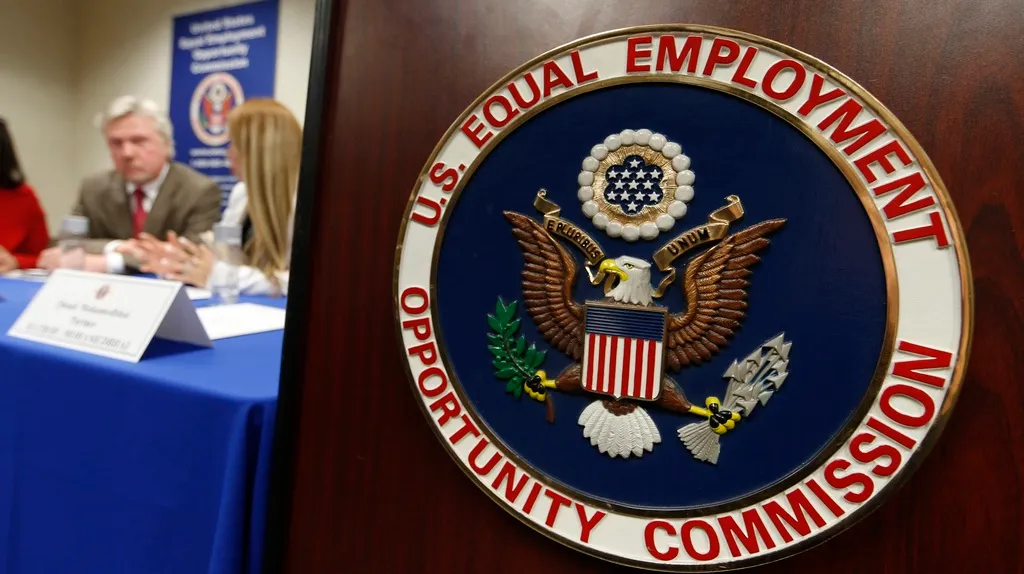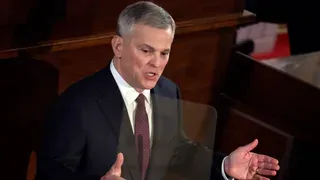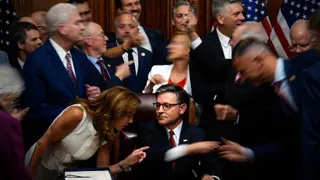March 21, 2021
Whiskey Makers Face Worsening Hangover From Trade Dispute
Bruce Schreiner READ TIME: 3 MIN.
A hangover from Trump-era tariff disputes could become even more painful for American whiskey distillers unless their entanglement in a trans-Atlantic trade fight is resolved soon.
Bourbon, Tennessee whiskey and rye whiskey were left out of recent breakthroughs to start rebuilding U.S. trade relations with the European Union and the United Kingdom in the wake of Donald Trump's presidency. Tariffs were suspended on some spirits, but the 25% tariffs slapped on American whiskey by the EU and UK remain in place. And the EU's tariff rate is set to double to 50% in June in the key export market for U.S. whiskey makers.
A leading spirits advocate is imploring top U.S. trade envoy Katherine Tai to not leave whiskey producers behind. The Distilled Spirits Council of the United States urged her to press for an immediate suspension of the European tariffs and to secure agreements removing them.
"Swift removal of these tariffs will help support U.S. workers and consumers as the economy and hospitality industry continue to recover from the pandemic," the council said in a recent statement after Tai was confirmed by the Senate.
American whiskey makers have been caught up in the trans-Atlantic trade dispute since mid-2018, when the EU imposed tariffs on American whiskey and other U.S. products in response to Trump's decision to slap tariffs on European steel and aluminum.
Since then, American whiskey exports to the EU are down by 37%, costing whiskey distillers hundreds of millions in revenue between 2018 and 2020, the council said. American whiskey exports to the UK, the industry's fourth-largest market, have fallen by 53% since 2018, it said.
The tariffs amount to a tax, which whiskey producers can either absorb in reduced profits or pass along to customers through higher prices – and risk losing market share in highly competitive markets.
Amir Peay, owner of the Lexington, Kentucky-based James E. Pepper Distillery, said American whiskey has become "collateral damage" in the trade disputes. It's cost him about three-fourths of his European business, and the looming 50% EU tariff threatens to drain what's left.
"That could possibly end our business in Europe as we've known it over the years," Peay said in a phone interview Thursday.
He's already curtailed some whiskey shipments to Europe as a hedge against the potential doubling of the EU tariff. His distillery's signature bourbon and rye brand is James E. Pepper 1776.
Peay spent years and significant money cultivating European markets, especially in Germany, France and the UK. He was planning to double his European business before the trade disputes hit.
"The way things are going, everything that we invested to date looks like it could be destroyed," he said.
The tariffs have hurt spirits industry giants as well.
"We estimate that our company ... has borne roughly 15% of the entire tariff bill levied against the U.S. in response to steel and aluminum tariffs," Lawson Whiting, president and CEO of Louisville, Kentucky-based Brown-Forman Corp., said recently. "They have become a big problem for us and it's imperative that we get it resolved as soon as possible."
Brown-Forman's leading product is Jack Daniel's Tennessee Whiskey, a global brand.
For Kentucky bourbon producers, tariffs slashed their exports by 35% in 2020, with shipments to the EU plummeting by nearly 50%, the Kentucky Distillers' Association said.
The EU had traditionally been the largest global market for Kentucky distilleries, accounting for 56% of all exports in 2017. It's now about 40%, the association said.
"Our signature bourbon industry has sustained significant damage for more than two years because of a trade war that has nothing to do with whiskey," KDA President Eric Gregory said. "And it will get much worse if we can't deescalate this dispute."
Kentucky distilleries craft 95% of the world's bourbon supply, the association estimates.
The thaw in the U.S. disputes with the EU and UK were part of an effort to resolve a longstanding Airbus-Boeing dispute. The tariff suspensions applied to duties that had been imposed on some spirits producers on both sides of the Atlantic. But the breakthroughs left plenty unresolved, including disputes that led to the retaliatory tariffs still hitting American whiskey.
The suspended tariffs mean some European spirits producers can ship their products into the U.S. duty free, while American whiskey makers are still subject to tariffs, Whiting said.
"We just want a level playing field for American whiskey," he said.






